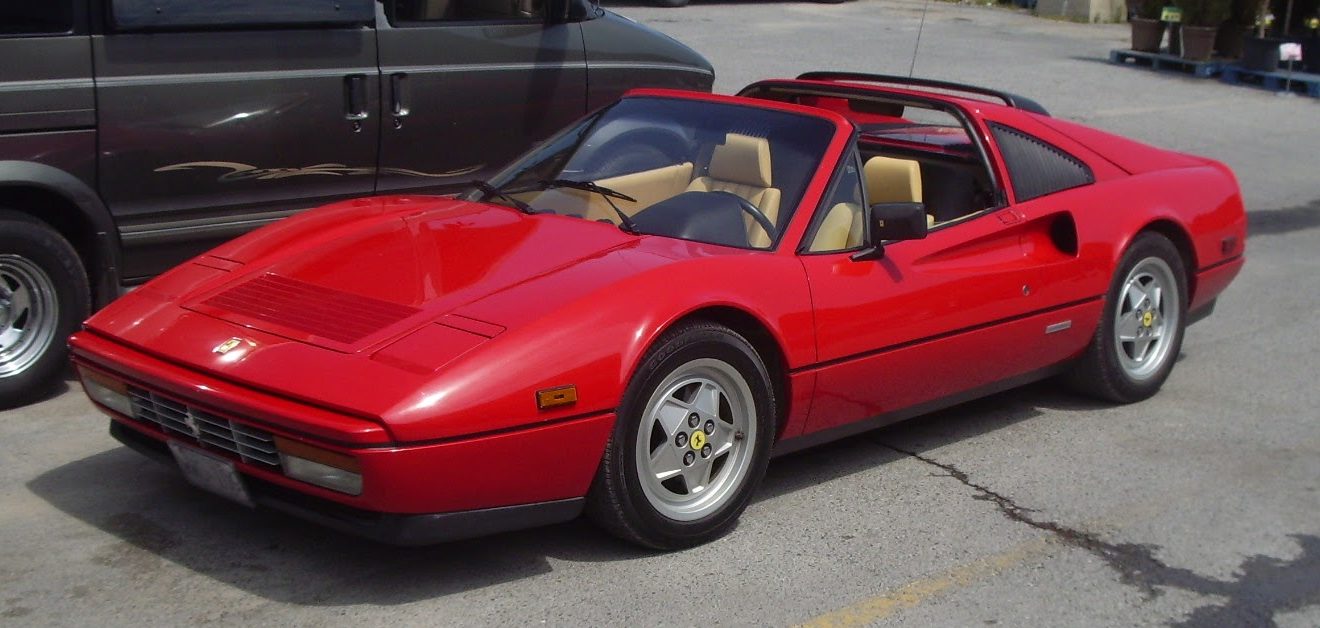 A few weeks ago, I posted about how to make great decisions. I even gave plenty of examples. Part of the process was to get the data and crunch the numbers, but sometimes that’s harder than it looks! Today I’m going to provide step-by-step instructions specifically to figure out how much your new car will really cost!
A few weeks ago, I posted about how to make great decisions. I even gave plenty of examples. Part of the process was to get the data and crunch the numbers, but sometimes that’s harder than it looks! Today I’m going to provide step-by-step instructions specifically to figure out how much your new car will really cost!
First off, let’s set some ground rules and do a bit of expectation management. This post focuses on the cost of a potential new or new-to-you car. Period. I’m assuming that you’re deep into shopping mode and have narrowed it down to a short list of options. (OK, maybe I’ll hopefully convince you that your car will cost more than you thought, and that you’ll rethink where you really want to deliberately spend your change…)
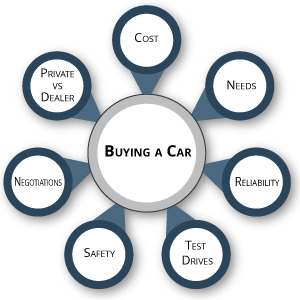
This post is not a how-to-buy-a-car post. We won’t be talking about needs, reliability, test driving, safety ratings, price negotiations, private vs. dealer sales, upselling tactics, navigating the professional gauntlet or any of that stuff. Of course, I’m more than willing to get into that if you like, but not today! I will remain strictly and purely focused on determining how much that car will actually cost in dollars, so that you can weigh that cost against the other non-financial things that are important to you, thereby allowing you to make well-informed decisions and trade-offs.
I suggest running these numbers for any car you are very serious about buying. In your early shopping you can make some general back-of-the-envelope estimates based on historical data and then be more specific and detailed when it’s almost time to pull the trigger.
If this seems like a lot of work, you are correct – it is. Cars are usually the largest or second largest purchase (after your house, if you’re a homeowner) that you’ll ever make, and it is a major driver of expenses and financial ball-and-chaining. But if you spend the time, knock that cost down and then save/invest the rest, you can make major strides towards financial stability and independence!

I have provided a free downloadable spreadsheet template that I refer to throughout this post. It’s instantly available for mailing list subscribers, so go grab it and follow along! I will use my personal 2012 Honda Civic as the working example, pretending I found it for sale yesterday and am considering buying it. Remember, the more real data you use, the better your estimates will be.
The Plan for Today
Because we’ve got a lot of ground to cover, I’ve split this post up into the following sections:
- Overall Approach
- How Much Will You Use Your New Car?
- What is the Net Purchase Price?
- What Is the Total Usage Cost?
- So How Much Will My New Car Really Cost Me?
- Other Random Yet Relevant Thoughts
- Your Turn Now!
Overall Approach
At its most basic level, we’re just going to figure out all of the costs of the car, add them up, and figure out the per year and per km cost. “All of the costs” means the net purchase cost plus the total usage cost. As we work through the various elements together, just punch them into the spreadsheet.
I’m also going to assume that you drive a typical amount and that you will incur maintenance costs on a mileage basis. If you drive less (our cars are each typically between 5,000 km and 13,000 km/year), then you might incur time-based maintenance expenses before the mileage-based limits are met. (You know, that whole “3 months or 5,000 km between oil changes thing of yesteryear?) But we’ll just ignore that for now.
Just because you think you can afford the payment does not necessarily mean you can actually afford the car.
Also, because we’re looking at the total cost, we are not going to look at the payment in isolation. You can borrow for your car if you want to, but I personally recommend never borrowing to buy a car, ever. If you have to borrow for the car, then you probably shouldn’t buy the car! That’s my opinion, and it has done well for me.
To be fully honest, I once had to borrow about $150 for a car, but otherwise everything was paid with cash. (Well, technically I was “un-prepaying my mortgage”*, but that’s a more advanced technique for another day!) There are obviously times when you might be forced into borrowing, but I would suggest that you buy far less car than you think you “need”. There are also times when there really isn’t a cash price discount, so you could take advantage of low interest rates as long as you are doing something else financially productive with the lump sum you would have used to buy the car.
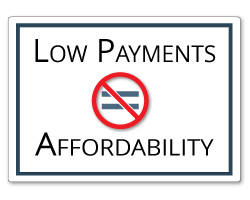
In other words, just because you think you can afford the payment does not necessarily mean you can actually afford the car. Run the numbers and see for yourself if you’re willing to spend the next 6 or 10 months of working just so you can buy that ride…
Side note: You could complicate things and bring in the time-value of money, but in our current low inflation environment, I’m going to ignore this element for now. Is that really valid? Perhaps not, but it would make the math more difficult for most people, so this is a case of the KISS principle. If you’re really hung up on it, the easiest way around this assumption is when you’re figuring out your opportunity cost and other alternatives, just treat everything as not adjusted for inflation, and you’ll have an apples to apples comparison.
How Much Will You Use Your New Car?
A key driver in the total cost of your new car will how much you use it, both in terms of km’s driven and years you keep it.
Figure out how long you plan to keep the car, but be honest. How long did you keep your last car and the car before that? That’s probably a pretty good starting point. If in doubt, you can run the numbers for two consecutive 4yr cars against one 8yr car and see what happens to your total 8yr cost.
Figure out how much you drive. How much did you drive last year? The year before? If you don’t track it like I do, you can get a good estimate using a couple of different techniques:
- When you register your licence plate sticker each year, you need to report the current odometer reading. I’m not sure if you get to keep a copy of that, but government certainly has it and I’m sure you could call and find out (yeah, that sounds like a pain…).
- Every time you take your car in for service anywhere, they record the mileage in and out. So just call your mechanic and ask for a few mileage readings and their dates, going back a year or two. (This is likely far easier than calling the government!)
You’ll also need to estimate how much of your driving is highway vs. city. If you’re unsure, you can just follow the Canadian average of 55% city and 45% highway [source: Natural Resources Canada].
Punch all these numbers into the top of the spreadsheet and carry on!

What is the Net Purchase Price?
The net purchase cost is what you pay the seller for the car, minus whatever you eventually sell or trade the car for later (resale value), plus all financing and accessories. Be sure to not include the trade-in value of your old car here, because that’s part of the calculation of your old car’s cost, not your new car!
Purchase Price & Financing
You would think that this is the easy part, and it mostly is. If you’re paying the seller cash, that’s your number. If you’re financing (through the dealer or a separate institution), then add up all of the payments. Be aware that “biweekly” payments are actually more expensive than apparently equivalent “monthly” payments because there are 52 weeks (26 biweekly payments) but only 12 months. In other words, $200 biweekly will cost you $200 x 26 = $5200, whereas $400 monthly will cost you $400 x 12 = $4800. Don’t be fooled by those two sneaky extra payments!
Regardless of how you pay, don’t forget to include all taxes, licensing, silly (that’s polite) dealer charges that may or may not be “mandatory”, loan arrangement fees, etc. If you’re buying an electric or hybrid car, there might be government incentives. Include those discounts here, but be sure to ask and know whether they are applied after or before sales taxes.
Here’s some food for thought: Sometimes vendors will advertise low or even 0% financing. This may or may not be a good deal, so do your homework. Often (but not always) you can negotiate a lower price if you pay in cash. If you do choose to finance this way, again, be sure to invest the lump sum that you had saved up for the car!

Resale Value (Or Depreciation)
Your car’s resale value can also be referred to as the depreciated value. In other words, how much value does your car lose (or depreciate) each year and each 1000 km you own it?
Depreciation is a bit of a black art but it’s not that hard to get an estimate. If you think you’ll keep your car for 8 years, then go to VMR Canada or Canadian Black Book, find the 8-yr-older version of your car, and look up the price. Note the difference between wholesale and resale, and that you are not a dealer. You will be lucky to get wholesale on a future trade, and probably somewhere halfway between the two if you sell privately (remember, the buyer wants a deal if it’s private, too!). I use the average of the two for my estimates, but I’ve included space in the spreadsheet for both values to give a bit of a range.
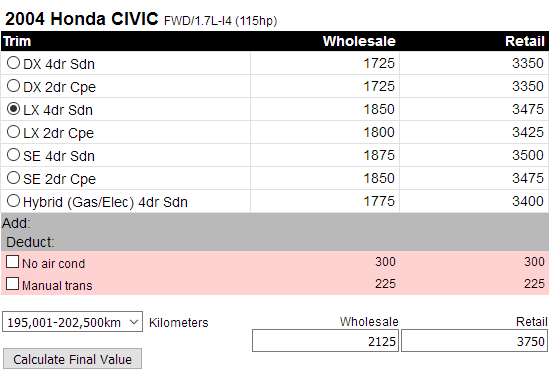
Source: VMR Canada

Accessories & Initial Maintenance
I like to include accessories in the purchase price of the car because they’re not maintenance, and you might be able to recoup a tiny bit of value from them. Things like tinted windows, spoilers, after-market fog lights, and so on are really not maintenance items; they form part of the car.
I also like to include the initial set of winter tires and rims in the purchase price. For sure, you can treat these as maintenance items, which I do when it’s time for the second set, but at the outset it’s part of the cost of purchasing the car and getting it on the road.
I also recommend including any major initial maintenance too, which likely only applies to used car purchases. For example, if the seller cannot confirm if the major 100k service has been completed and it’s now 110,000 km, I would budget that $300 or $400 service into the “purchase” cost. Put another way, if the seller had done it, he would want that money back through a higher purchase price. Admittedly this is debatable, but just remember to keep it somewhere!

Current Trade-In Value
I recommend ignoring your trade-in when figuring out how much your new car will cost. The value you receive for your trade-in appears to reduce the value of your new car, but really all you’re doing is locking in your depreciated value of the old car. Calculate your new car cost while ignoring the old car.
But what about the reduced tax I pay by using my trade in? Again, treat that as part of the trade-in’s value. Let’s say your old car is worth $10,000 on trade. (With that much life left it in, why you’d be trading it in is a mystery to me!) In Ontario we have a 13% sales tax, so the trade would reduce the price of your new car by $10,000 and therefore save 13% or $1300 in taxes on your new car. But, if you were to take your old car and sell it privately for $12,000, you would actually be further ahead by $700. You would pay the dealer $11,300 more for the new car and then go collect $12,000 from the private buyer.
Would you consider that $12,000 or $2000 (12k-2k) as reducing the price of your new car? Probably not. That’s really a way of saying I can sell my old car to the dealer for $11,300 or I can sell it privately (with more time and effort) for $12,000. Make a choice, but keep it out of the calculation for the new car.
One final note here: Some dealers will inflate the value they give you for the old car but then not negotiate as much on the new car. This degrades the “purity” of the calculation. You can either use their numbers, or adjust them slightly in your spreadsheet (old car worth less, but so is price of new car). Ultimately all I really care about is old car + how much money = new car, so if they want to play those games they can. (Did I just shoot my entire argument in the foot here? Nah, I’m just getting into slightly more advanced concepts beyond the scope of this post!)
What Is the Total Usage Cost?
The usage cost is the total of everything you pay to operate the vehicle while you own it. This includes fuel, routine maintenance, surprise repairs, insurance and miscellaneous fees.
If you’re doing preliminary car-to-car simple comparisons across similar cars in similar classes with similar age/mileage, then the usage costs are probably similar. You can always spot check some of the categories to be sure (e.g. fuel consumption is easy to check quickly).
Fuel
Gas is easy, but it’s always a guess. You’ve already entered how far you go and your city/highway split. So just drop in the fuel economy ratings of the vehicle you’re looking at and what you expect to pay per litre of fuel! I’ve defaulted to $1.15/L, but you can change that to whatever you like.
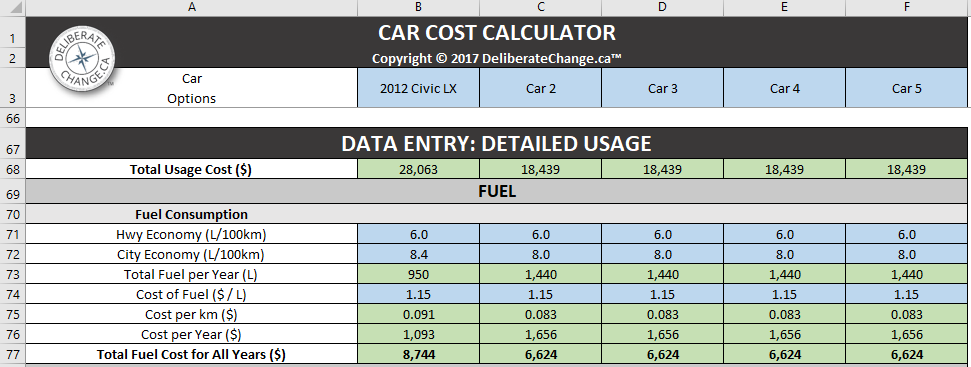
US Ratings: http://fueleconomy.gov/feg/findacar.shtml
Canadian Ratings: http://oee.nrcan.gc.ca/fcr-rcf/public/index-e.cfm
Hmmm – Aren’t those ratings bogus?
For the longest time, yes. The ratings were not indicative of real-world driving at all. Recently though, the American and Canadian authorities updated how they test and rate cars. Let’s do a quick comparo:

Wow! They’re pretty much the same! Sometimes a percent or two higher, sometimes a tad lower. But how do they compare to the real world? Let’s find out…
Here is my actual real-world fuel consumption for the first 3 years I owned and drove a used 2006 Honda CR-V (we still have it, and I still record all of the data, but I just haven’t gone and crunched the numbers for the last few years).
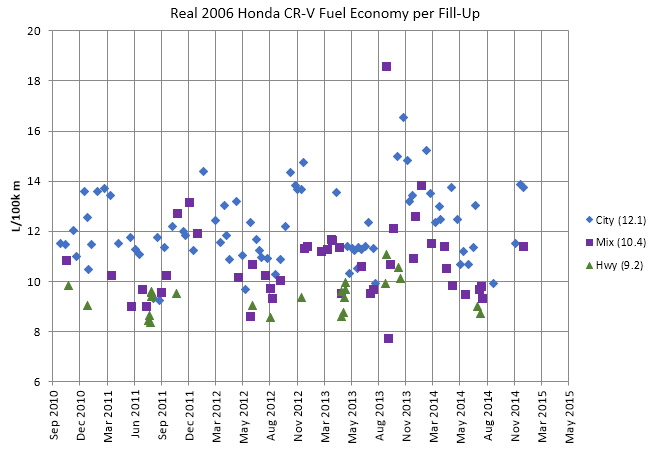
My highway economy (green dots) averages to 9.2L/100km and city is 12.1L/100km. That’s pretty darn close to the ratings, and even slightly better in some cases! (US = 9.4 & 11.8 and Canada = 9.5 & 12.0.) I’ve seen similar patterns for other cars I’ve owned when I previously checked them against the US ratings (which were updated a few years before the Canadian ratings). Oh, and isn’t it astounding how much the fuel economy changes through the seasonal temperature swings?
Of course, based on your driving habits and local environment, your mileage might vary! And that’s why I’ve included a spot in the spreadsheet to fudge the numbers a bit if you still don’t trust the government ratings.
Routine Maintenance
For routine, predictable maintenance, ask your local dealer (even if you’re buying privately) or check online for the maintenance manual / schedule and prices for common services. List them all down along with their mileage due dates and add them up. You know how many km’s you drive per year, so just multiply that by the number of years you’ll keep the car and add up the maintenance bill for that number of km’s. My handy spreadsheet will even do that all for you for select vehicle brands! (Look at the “Short Way” in the screenshot below.)
Unless you barely drive your car, this category will be purely mileage-based; if your car sits a lot, you might have to perform maintenance before the mileage recommendation; be sure to account for that in your calculations.
Don’t forget voluntary routine maintenance such as annual rust protection, winter/summer tire swaps, and consumables such as washer fluid and wipers.
There are usually some long-interval but expensive routine maintenance items. Tires and brakes are the obvious ones, but depending on your car you could have a timing chain, major fluid flushes, and so on. Pay attention to these, particularly if you’re buying a used car.
For all season tires and brakes, a 60,000km interval is pretty common, although you can sometimes get up to 80-100,000km if you’re kind on your car. Winter tires are probably closer to 40,000 km. For example, when I bought my Civic with 61,000km, it came with a brand-new set of tires and almost-new brake pads. I also put brakes and tires in the routine category because you can easily tell how much life is left in them through routine inspections with your mechanic.
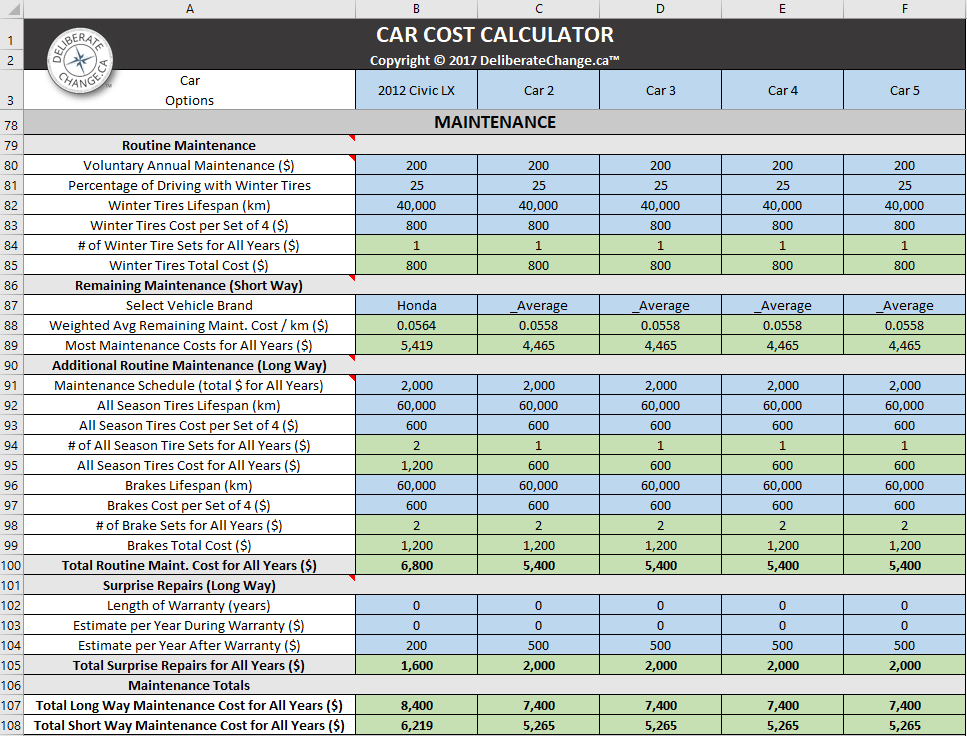
Surprise Repairs
Oooh, this is the category that everybody likes to wave around as reasons to not buy used cars! Used cars are awesome if you do your research and buy a good quality, reliable car. I tend to favour Japanese cars, but there are certainly plenty of good and bad examples of reliable cars from many different companies. For example, one of my neighbours is still rocking his 20yr old Buick, and it looks great! As promised, I am not going to get into how to pick a reliable car; that’s perhaps for another day (or you could just Google it and read the reviews…).
Still, you need an estimate of surprise repairs. A good estimate is $0 while the car is under full warranty and probably $200-400/year average after that for a good car, and $800-1000/year for a less reliable car (I’ve owned from each category!). Remember, this is an average. You won’t spend anything some years and then others you’ll unexpectedly need new ball joints at the same time as your exhaust system fails an emissions test and you get a non-repairable flat tire…
Special note here: If you think you can escape a major surprise expense by selling the car right after the problem is discovered, think again. Unless you’re playing dirty and fleecing the buyer, he or she will want a discount in the price commensurate with the repair bill! (Wouldn’t you?) So if you have an old about-to-die car, either accept the fact that it will be worth next to nothing when it does die or get rid of it now while it’s still worth something. Just remember that even a new transmission or engine in an older car is usually cheaper than a new car! It just sucks when you do the engine this year, tranny next, the suspension after that… That’s called a lemon!
Insurance
Insurance is a pain but easy. Call your current insurance company and ask for the annual rate for the new car. Be sure it’s the annual rate and not the prorated difference in the annual rate based on how much time remains until your policy renewal date. Then call one or two other companies and get quotes. Be sure to compare apples to apples regarding liability, deductibles, rental car coverage, injury claims, etc.
To extrapolate out, you can look at your insurance rates for the last several years if you still have them (I do), or you can assume that they’ll just stay the same. I’ve found that they actually go down a tiny bit from year to year as the cars age and then jump when a newer car arrives on the scene…

I’ve also found that most cars in the same class cost about the same for insurance. Insurance appears to be more dependent on your demographics, where and how much you drive, and your past claims history. But I’m no insurance expert, take this with a grain of salt!
Fees
If you’re comparing Car A to Car B, then your fees should be pretty much identical. If you’re trying to figure out how much your car in total will cost, then fees are a surprisingly large part of the math. Include your annual licence plate sticker fee and emissions and safety test fees (if applicable for your vehicle and jurisdiction).
Toll roads and parking fees fall into here. They are just as valid as the cost of gas, except they are dependent on having a car, instead of depending on which car. If you are looking at a seasonal car you might need to add in storage costs. Do not include parking or traffic tickets, because those are both entirely avoidable.
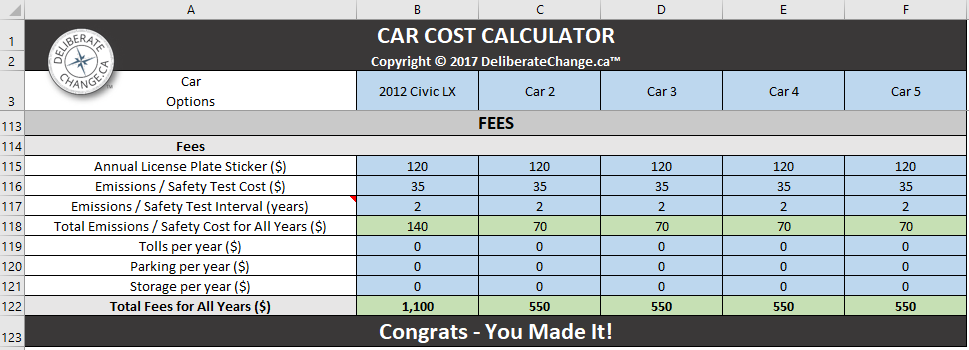
So How Much Will My New Car Really Cost Me?
Now that you’ve punched all of your numbers into the spreadsheet, scroll back up to the top and to the summary section. I’ve split up the purchase from the usage costs for your convenience. I’ve also broken it down by cost per year and cost per km.
At this point you should have a pretty good idea of what your car will likely cost you over the coming years. I bet you’ll be surprised at how much it is! Just look at those per-km costs, too. Far more than “gas” alone. It’s a bit humbling…
Feel free to run some scenarios, such as what happens if your usage changes, or if you have a range on some of your input variables. In other words, run a basic sensitivity analysis to see how things change if your behaviour or assumptions change.
When you think about how much “money” something is costing you, particularly something substantial like a car, reframe it in terms of how many hours you need to work to afford that item. Keep in mind your take-home pay is far less than your pre-tax pay. Then make a deliberate decision if you’re willing to make that trade of time or effort for the car or optional upgrade!
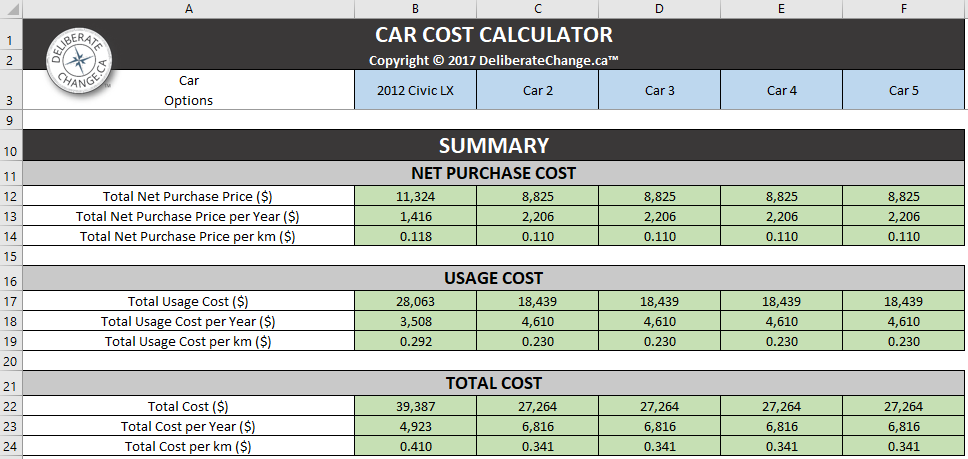
Other Random Yet Relevant Thoughts
The seller may try to convince you that a feature or upgrade is only $x per payment. This will sound very low. But multiply it out by the number of payments and you will quickly see that it adds up to a much bigger number! There’s nothing necessarily wrong with that, although I wouldn’t personally recommend it. As long as you know the true, real cost of the upgrade, you can determine if it’s worth spending your money on.
And finally, if you’d like a hand working through this stuff for your next purchase, drop me a line! I’d love to help out! And if you say it’s OK, maybe we can even create a reader case study out of it?
 Your Turn Now!
Your Turn Now!
Have you ever gone into this type of detail to figure out what your car is really costing you? What other transportation options have you considered, such as biking, public transit or carpooling? Have you run these numbers on the car(s) you own right now, and were you surprised at the results? And be sure to let me know if you’d like to see some updates or improvements to the spreadsheet.
– –
* Expect this to be a future blog post someday…
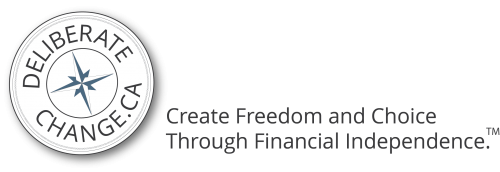
 Your Turn Now!
Your Turn Now!





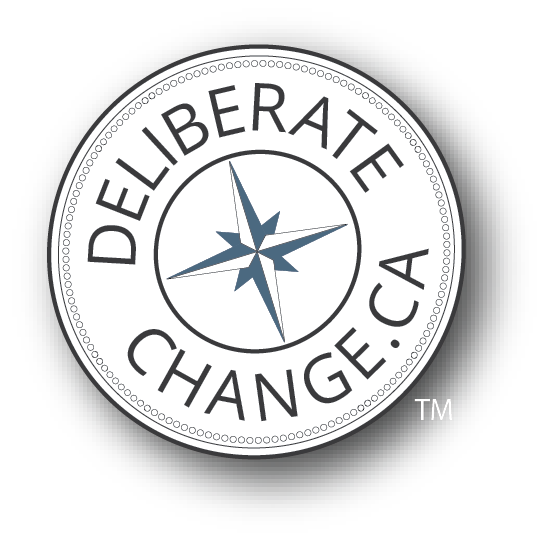

It might be worth supplementing this article with negotiation strategies used by dealers (and ones you can use on them) to get a better price.
Thanks Paul. There are many, many different aspects to consider when buying a car. I’ve now added dealer negotiations to my list of future blog topics!
One strategy that I’ve used is to get them to put everything on paper, leave to “think about it”, wait 24 hours and call back and say “I really want to do this, but I need to get another $500.00 on my trade to make it work with my wife.” The key is to make it small enough that they still make plenty on the vehicle. A salesman likely won’t kill a deal over 500$.
Good tip! I also agree that it’s important to make sure that they can make a few bucks on the deal, too.
Another strategy to consider is to e-mail the sales manager and negotiate the purchase price over e-mail. This saves you time and avoids the stress of negotiating with the salesperson in the dealership. Sales managers actually like this strategy too, since it saves them time as well and they know that they are dealing with a serious buyer. I used this strategy for my recent car purchase, and it went smoothly.
That’s a great idea, Dr. N. Did you email only with one dealer or with a few simultaneously?
HI Chris,
I just e-mailed my local dealership, telling the sales manager on e-mail that I was giving him first dibs to give me a good price, or else I’d e-mail another dealership. After 15 minutes of a couple of back and forth e-mails, we finalized on a price of 2% above invoice (Toyota Highlander). Went in the next day and signed the papers. No stress, No fuss.
Nice. Glad you got a great deal! Sounds a lot easier than most of the used-car deals I’ve swung (private or dealer, there’s always some sort of catch or bait-and-switch they try and play).